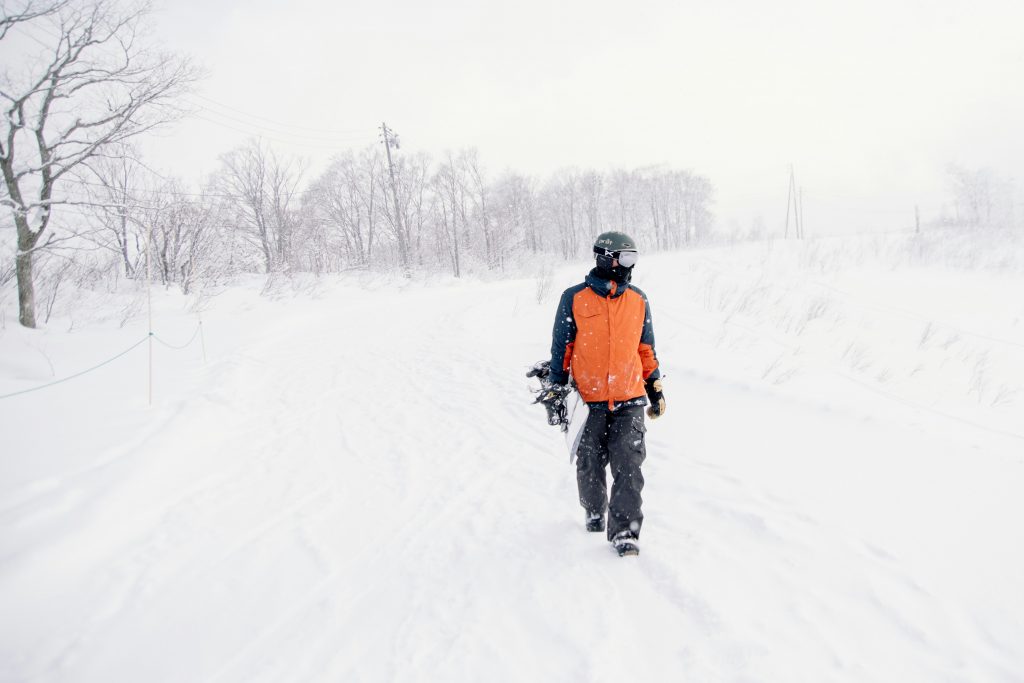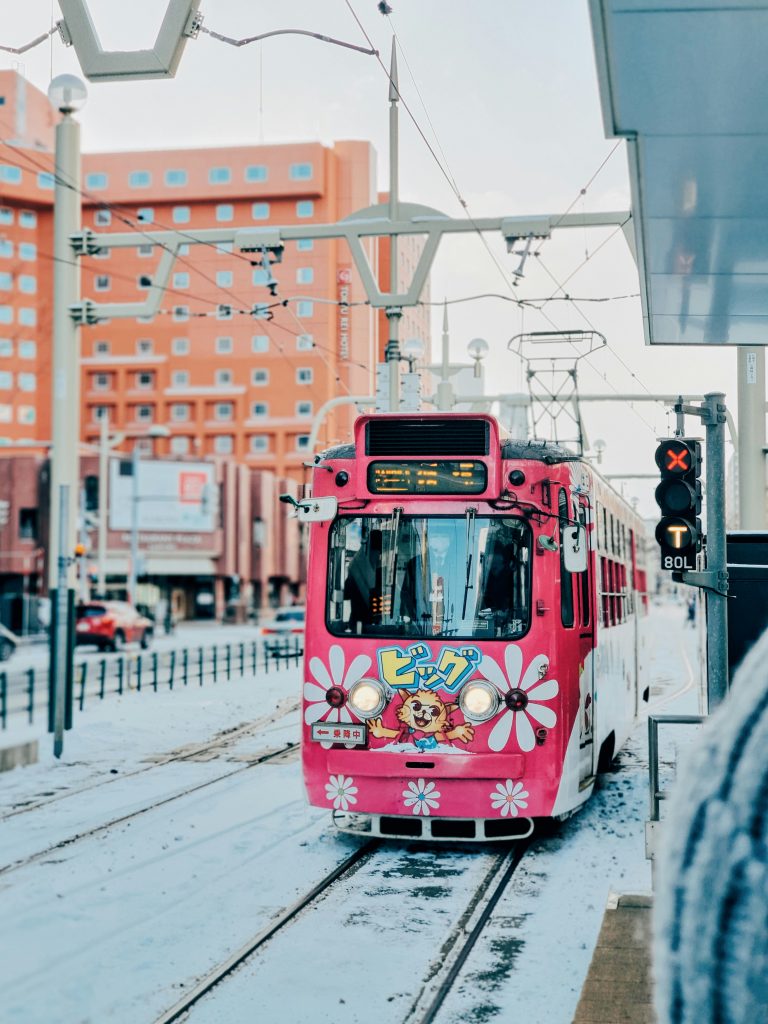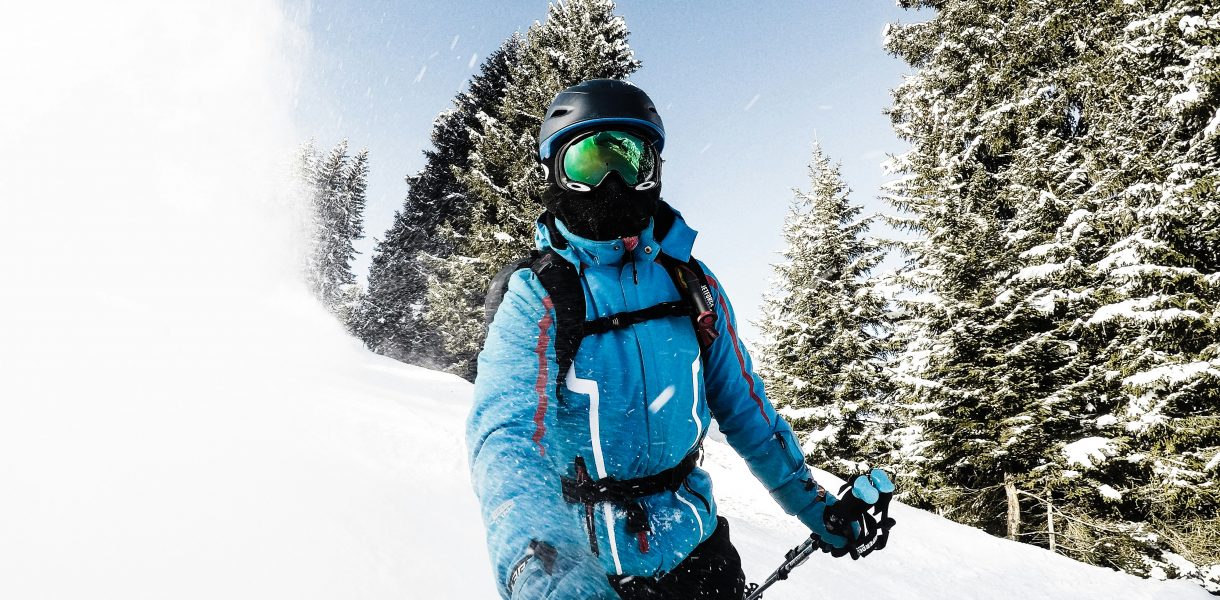Are you getting ready for an epic Japanese ski adventure filled with powdery slopes, breathtaking mountain views, and delicious bowls of ramen? Well, allow us to help you in your preparations for experiencing this winter wonderland. In this guide, we’ll tell you all about what you need to stay toasty, cosy and primed to tear up those trails. Here is the complete guide to what you need to pack for your Japan ski trip, plus some bonus tips that will help you throughout your time on the slopes.
Layers Are Your Best Friend
Japan’s winter air is beautiful, clean, and definitely cold. Since you’ll be spending most of your time outdoors, it’s essential to pack for the elements. And that means layers, layers, layers!
- The Base Layer: This is your foundation, the first layer against your skin. Think merino wool, heat-tech fabrics, or thermal underwear—something that will wick away moisture and keep you warm and dry.
- The Mid-Layer: Now we’re adding warmth and coziness. Fleece or a sweater will do the trick, and you can even layer a second mid-layer if it’s extra chilly.
- The Outer Layer: This is your armour against the elements. A warm, waterproof, windproof jacket is essential! Look for a jacket with a powder skirt to keep snow out and a handy pass pocket. Gore-Tex is a great choice for waterproof, breathable protection.
Essential Gear for Your Japanese Ski Adventure
Now, let’s talk about the gear that will make your trip truly amazing:
- Ski Socks: Invest in high-quality thermal ski socks for extra cushioning and warmth. Cold feet are a recipe for disaster on the slopes, so make sure your feet are happy!
- Ski Pants: Waterproof, breathable, and equipped with gaiters and zippered vents to keep you dry, warm, and comfortable.
- Ski Gloves: Insulated and waterproof gloves are a must! We suggest a Gore-Tex shell with inner glove liners.
- Neck Warmer/Balaclava: Protect your face and neck from the cold wind and snow with a neck warmer or balaclava. They’re also great for keeping the sun off your face!
- Goggles: Good visibility is key when skiing. Invest in high-quality goggles with antifog technology and UV protection, especially in Japan’s humid climate.
- Ski Helmet: Safety first, my friend! A certified ski helmet is essential for protecting your head.
- Sunscreen: Don’t forget the sunscreen! The sun’s rays are more intense at higher altitudes and can reflect off the snow.
- Lip Balm: Dry winter air can be harsh on your lips. Pack a moisturizing lip balm with SPF.
- Hand and Foot Warmers: These are lifesavers on extra chilly days. Slip them into your gloves or boots for some extra warmth.
- Waterproof Snow Boots: You’ll need sturdy, insulated, waterproof boots for walking around the resort and après-ski activities.
- Down Jacket for Après-Ski: Pack a lightweight, packable down jacket for those times when you’re off the slopes and want to stay warm.
- Warm Hat: A warm hat is a must for keeping your head and ears toasty. Wool or fleece are your best bets!

Ski Gear Rental is Available
If you don’t want to bring all your ski gear, no worries! Most Japanese ski resorts offer rental equipment:
- Skis and Snowboards: Rent high-quality skis and snowboards, whether you’re a beginner or a seasoned shredder.
- Ski Boots and Snowboard Boots: Comfortable and supportive boots are essential for a good experience on the slopes.
- Poles: You’ll need these for skiing, and they come in various sizes to match your height and style.
- Helmets: Safety is paramount, and helmets are readily available in different sizes.
- Outerwear: Jackets and pants designed for skiing and snowboarding can also be rented.
- Gloves: Protect your hands with rental gloves suited for cold weather.
- Safety Gear: You can often rent additional safety gear, such as knee and elbow pads, for extra protection.
- Backcountry Gear: For those venturing off-piste, some resorts offer backcountry skiing and snowboarding gear rentals.
Don’t Forget Your Electronics
Of course, these are just as important as your winter clothes and ski gear. Don’t forget to pack these electronic essentials as well:
- Power Adapter: In Japan, power outlets are Type A and Type B, so make sure you bring a universal power adapter to charge your devices without hassle.
- Ski Pass Holder: Look for a waterproof ski pass holder that can easily attach to your jacket. This will keep your lift pass secure yet easily accessible.
- Wheeled Ski or Snowboard Bag: Transporting winter gear will be easier if you have a ski or snowboard bag with wheels. Trust me, it’ll come in handy when you’re navigating airports and resorts.
- Action Camera: An action camera like a GoPro or an Insta360 to capture all of your skiing adventures. It’s compact, durable, and perfect for catching your awesome ski runs.
- International Driving Permit (For Car Rental): If you plan on renting a car in Japan, you need to bring your International Driving Permit as it is legally required in order for you to drive.
- GPS-Enabled Ski Watch: A ski watch with GPS tracking of routes, altitude measurement and other data helps maximise your skiing experience through navigation and insight.
Bonus Tips for a Smooth Ski Trip in Japan

Book Early
Ski resorts in Japan can get very busy, especially during peak season. Book your accommodation, ski passes, and rentals well in advance to make sure you get the place you want. That means booking as early as May or June, months before the ski season starts.
Always Be On Time
Japan’s public transportation is always on time. So, if the bus or train says it’s arriving at 16:52, you better be on the platform at 16:51! It’s fantastic for efficiency, but it can be a bit stressful. If you miss the trip, it might be another hour until the next one, so missing a train can throw off your whole day.
So, here’s the trick: always buffer in extra time. Or, you know, rent a car. It might give you a little more freedom.
Respect the Culture
Now, this goes without saying – but it’s always a good reminder. Japan is known for its respectful and polite culture. Be mindful of local customs and etiquette, especially in public places and hot springs (onsen).
It also wouldn’t hurt to learn some basic Japanese words such as “Arigatou gozaimasu” (Thank you!) or “Sumimasen” (Excuse me). While many resort staff speak English, learning the simple words can come a long way and Japanese will highly appreciate it.




